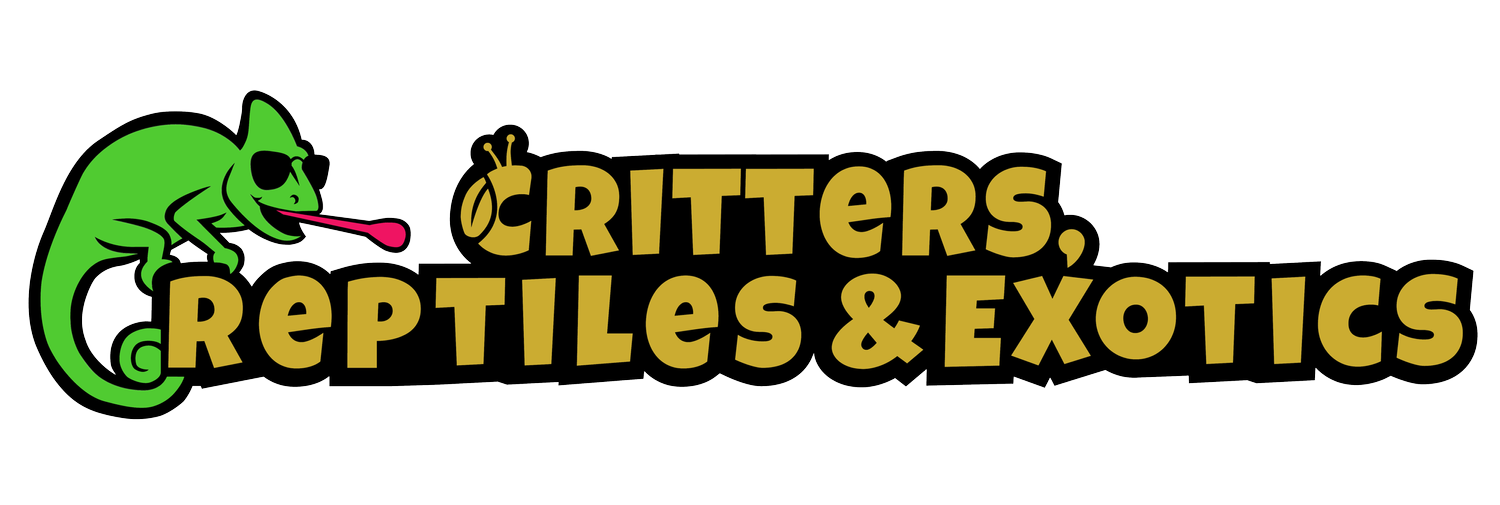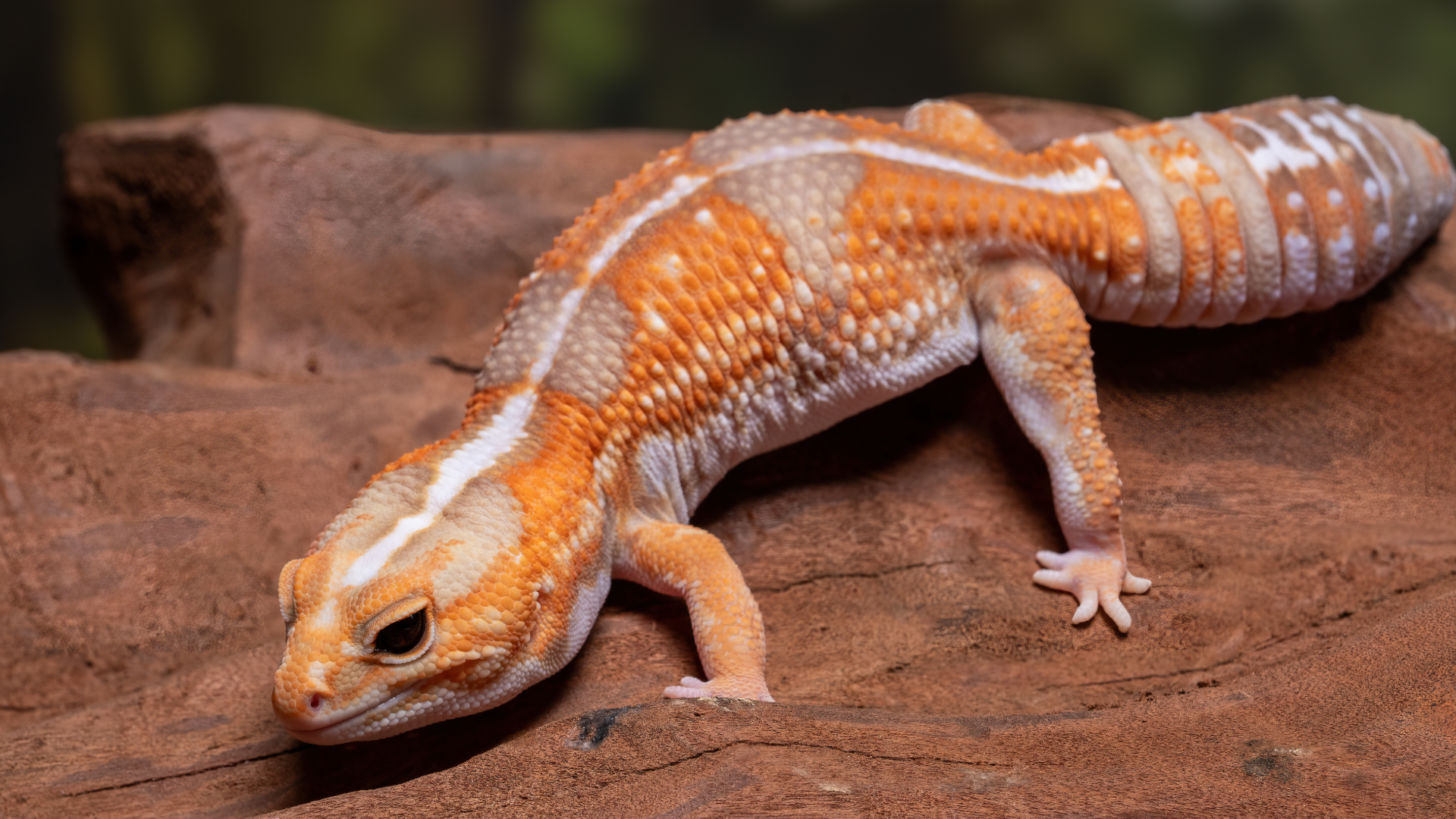Caring for your African Fat-Tailed Gecko
African Fat-Tailed Gecko
Hemitheconyx caudicinctus
Basic Information:
The African Fat-Tailed Gecko is native to the semi-arid regions of West Africa, found in countries like Ghana, Nigeria, and Senegal. They are terrestrial and crepuscular, meaning they are most active during dawn and dusk. These geckos typically grow between 7-9 inches for females and up to 11 inches for males. A unique feature is their thick, fat-storing tail, which can help them survive periods of food scarcity.
Lifespan:
10-15 years in captivity.
Sexing:
Sexing can be done around 6-8 months of age. Males have visible pre-anal pores and hemipenal bulges near the base of the tail, while females do not exhibit these features.
Enclosure:
Juveniles: 10-20 gallon horizontal terrarium (minimum 24"x12"x12")
Adults: 40 gallon horizontal terrarium (minimum 36"x12"x18")
Substrate:
We recommend a loose substrate blend that mimics their natural environment, such as a mixture of sand and coconut fiber, which helps maintain the appropriate humidity.
Lighting & Temperature:
Basking Area: 88-90°F.
Ambient Temperature: 75-85°F.
Cool Side: 70-75°F.
UVB Lighting: A 5.0 UVB bulb is recommended.
Humidity:
African Fat-Tailed Geckos require moderate humidity levels between 50-70%. A humid hide with moist sphagnum moss is necessary to support healthy shedding.
Food:
These geckos are insectivores. Feed them gut-loaded crickets, mealworms, and dubia roaches.
Water:
Provide a shallow water dish with fresh water at all times. African Fat-Tailed Geckos will drink from the dish and may soak in the water to assist with shedding.
Supplementation:
Calcium with D3: Dust food 2-3 times weekly.
Calcium without D3: Use on alternating days if adequate UVB lighting is provided.
Multivitamins: Offer once weekly to support overall health.
With proper care, the African Fat-Tailed Gecko can make a great pet for both beginners and experienced reptile enthusiasts. They are relatively low-maintenance compared to other reptiles and are known for their docile nature and unique appearance. By providing the right enclosure, diet, and consistent care, these geckos can thrive in captivity for many years, making them an enjoyable and rewarding companion.


